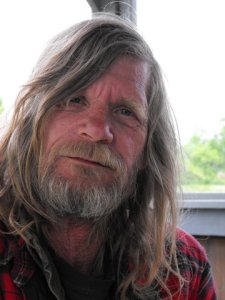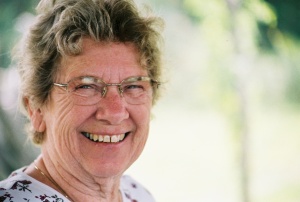 More than six months passed between the Twelve Night of Christmas and my 40th birthday in 1998. Sam didn’t woo me with wine, flowers or expensive jewelry. The look in his eye, the smile upon his lips, his hands touching mine; he gave me his heart. Sam’s idea of a gift involves “building,” or “making” or “doing”; not “buying” something for somebody.
More than six months passed between the Twelve Night of Christmas and my 40th birthday in 1998. Sam didn’t woo me with wine, flowers or expensive jewelry. The look in his eye, the smile upon his lips, his hands touching mine; he gave me his heart. Sam’s idea of a gift involves “building,” or “making” or “doing”; not “buying” something for somebody.
For my 40th birthday he gave me something I had only dreamed about since I was a little girl: a dinner date with a boyfriend. He had gotten to know me just well enough to know that it wasn’t dinner he was buying that night, it was a feminine fantasy he fulfilled.
“I want to take you out on a date for your birthday,” Sam told me a week in advance. “We’re going out for a prime rib dinner.”
This was my first real date. Not with Sam. With any guy. Not that I hadn’t hooked up with men, but this was an “official date” in the sense that 1) he asked me 2) in advance 3) it wasn’t going to be “dutch,” 4) and I was expected to dress up and act like a lady. Dating had not been part of my social repertoire.
When I was in high school I recall the dread that filled my chest when my father would answer the phone in the evenings and it would be a call for me.
“Jill. Jill. Telephone is for you. It’s a BOY…..” my father would mockingly call out. A boy who missed class and needed notes or some dweeb who wanted the answers to tomorrow’s math homework or my gay friend, Mark, who spoke German nearly as well as I did comparing our comprehension of the short story assigned for discussion. The embarrassment my father could induce with that mocking tone in his voice still makes me cringe. Secretly I wished for what my dad wanted all along for me: a man to treat me like a lady.
I look forward to my birthday like a kid who has never grown up even now that I’m in my 50s. Sam’s gifts don’t come in a box. One year he built a dock at the other end of the pond. That same year he invited my sister and her family to spend the week. Witnessing Sam teach my nephew, Ben, how to fish at dusk is a memory gift.
Another birthday present was the addition to the southwest side of the cabin. It started out as a two-tiered porch. We grilled steaks there on July 16. He reminded me of the time we had laid in the grass there in the middle of the afternoon and made wild passionate love.
“Do you remember how hot it was? Must have 95 degrees and we weren’t in the shade,” he said grinning. “Remember how Charlie Fields showed up and caught us butt-naked?” he laughed.
“Your butt is the only one he saw,” I reminded him.
The two-tiered porch became a sunroom when he closed it in later that summer with windows he salvaged from the Trumansburg School renovations.
For my birthday presents, Sam schemes up some project to enrich our homestead life. He plans presents that keep on giving.
One year he transplanted blue corn flowers he’d found in the middle of the corn field. They bloomed through the fall and into December. Bright blue. My favorite color
In 2005 Sam fulfilled another childhood fantasy: a surprise birthday party. When your birthday is in the middle of summer there are no classroom observations of your special day. I was lucky to get a bunch of cousins together with a cake for my childhood parties. My birthday never seemed special when it came around.
I never quite got over that until I hit my mid-40s and realized I didn’t care to have any more disappointments in the getting older category. I’d had years of practicing the “I don’t care” attitude and it had finally sunk deep into my soul. I really didn’t want to observe the “day” of being another year older anymore.
After a full day of picking beans and produce in the stifling heat for Farmer’s Market and then standing there for hours waiting on customers, I returned home exhausted. I felt older.
Sam wasn’t in the cabin. I walked toward the other end of the pond to find him and see if he’d started a fire to barbecue dinner. There at the pavilion was a big gathering with friends and family. Party decorations, balloons, flowers, catered dinner and a special birthday cake. I never suspected a thing and it was a wonderful 47th birthday. He made my day. I don’t need any more birthdays now.
 Uncle Donald was beginning to show early stages of Alzheimers disease when I met him. I recognized some of the signs before others did. But I loved him so much immediately I couldn’t say anything to anyone they didn’t already know. Uncle Donald had a pea-shelling machine that would save me countless hours, I had heard from Sam and Tom during Charlie and Janet’s reception dinner. I stopped by their house in Mecklenburg to inquire.
Uncle Donald was beginning to show early stages of Alzheimers disease when I met him. I recognized some of the signs before others did. But I loved him so much immediately I couldn’t say anything to anyone they didn’t already know. Uncle Donald had a pea-shelling machine that would save me countless hours, I had heard from Sam and Tom during Charlie and Janet’s reception dinner. I stopped by their house in Mecklenburg to inquire. Aunt Nori came out of the house with a plastic bucket. She walked to the side of the house and started unwinding the hose. Then she turned the faucet on, but the power head on the hose was still off. Nori aimed the sprayer at the wooden running board and shot it down wet in a hurry. Then she showed me the real magic to this process of cleaning peas. As she ran the peas down the board, all the chaff stuck to the board and the peas ran down clean into the bucket below. Nori’s kitty kept tangling herself around her ankles. Every time Nori took a step that cat did a figure eight through and around her feet. Nori stopped to pick her up and held her nose close to her cheek.
Aunt Nori came out of the house with a plastic bucket. She walked to the side of the house and started unwinding the hose. Then she turned the faucet on, but the power head on the hose was still off. Nori aimed the sprayer at the wooden running board and shot it down wet in a hurry. Then she showed me the real magic to this process of cleaning peas. As she ran the peas down the board, all the chaff stuck to the board and the peas ran down clean into the bucket below. Nori’s kitty kept tangling herself around her ankles. Every time Nori took a step that cat did a figure eight through and around her feet. Nori stopped to pick her up and held her nose close to her cheek.
 In early July 1950 Charlie and Janet Warren were married. For their 50th wedding anniversary, Janet decided she would like to get married all over again.
In early July 1950 Charlie and Janet Warren were married. For their 50th wedding anniversary, Janet decided she would like to get married all over again.
You must be logged in to post a comment.